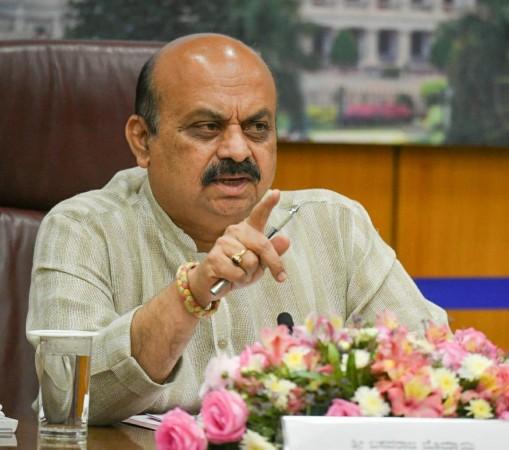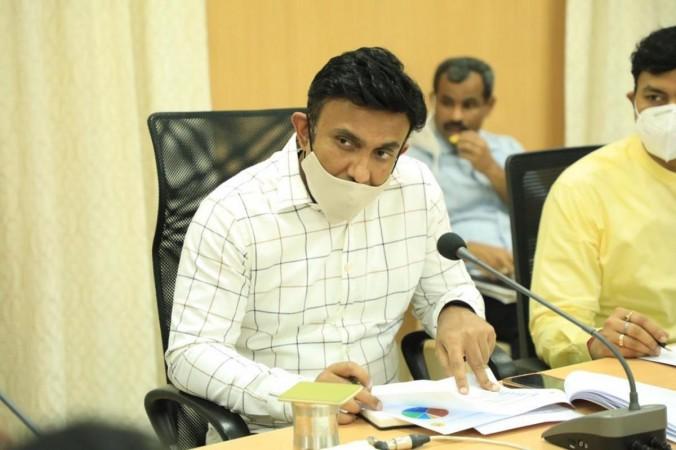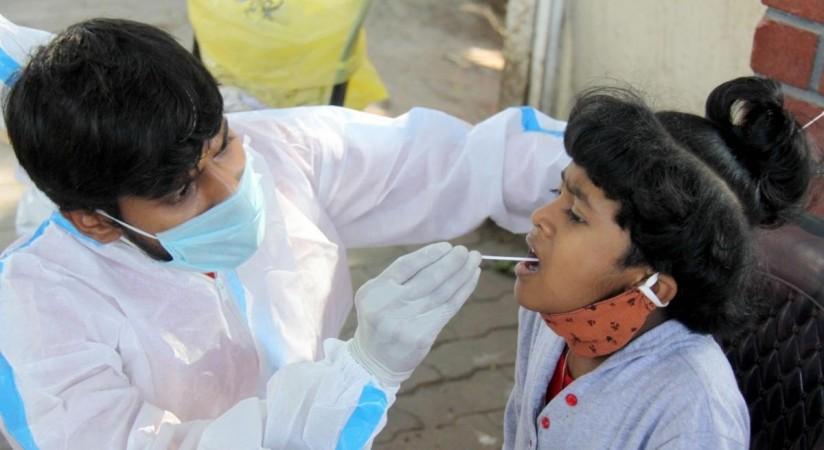COVID-19 cases are once again on the rise. Many states are reviewing guidelines and imposing restrictions to curb the spread of coronavirus cases. Karnataka government on Tuesday announced new restrictions, including weekend curfew from Friday.
Karnataka CM Basavaraj Bommai, while considering more containment measures, ruled out any measure that will have a direct impact on the livelihood of the people. As per the fresh order, the weekend curfew will be imposed in the state from Friday 10 p.m. till Monday 5 a.m. and will remain in effect for a period of two weeks till January 19.
Karnataka minister R Ashoka also noted that the schools in Bengaluru except Class 10 and Class 12, will remain closed for two weeks from January 6. Also, hotels, restaurants, cinema halls will now operate at 50 percent capacity with entry restricted for fully-vaccinated individuals. Marriage functions will not host more than 200 guests in open spaces and 100 people in closed spaces.

COVID containment guidelines
Here are all the restrictions imposed in Karnataka in light of rising COVID-19 cases.
- Night Curfew will continue to be imposed from 10 pm to 5 am in the entire State as per the existing guidelines.
- All offices will function 5 days a week from Monday to Friday during this period.
- The Government Secretariat will run with official below the rank of Under Secretary at 50% of the working strength.
- There shall be weekend curfew from Friday 10 pm to Monday 5 am in the State as per the guidelines attached.
- The Public transport including BMRCL will operate as per the directions of the Chief Executive of the organization to cater to the needs of people for emergent purposes during the weekend curfew.
- In Bengaluru Urban district, all schools and colleges except, Medical and Para Medical will remain closed with effect from 06-01-2022 except class 10th, 11th and 12th .
- Pubs/clubs/restaurants/bars/hotels/eating places in hotel etc, will function with 50% of the seating capacity strictly adhering to COVID appropriate behaviour and entry to such places will be restricted to fully vaccinated persons.
- Cinema halls/multiplexes/theatres/rangamandiras/auditorium and similar places to operate with 50% of its seating capacity strictly adhering to COVID appropriate behaviour and entry to such places will be restricted to fully vaccinated persons.
- Marriage Functions are permitted to be conducted involving not more than 200 people in open spaces and 100 people in closed places strictly adhering to COVID 19 appropriate behaviour and prevailing guidelines issued by State Government.
- Religious places are allowed to open only for Darshan. No seva, etc, is allowed. Entry of people will be restricted to 50 persons at any given time who are fully vaccinated.
- Malls, shopping complexes, all stand alone shops and establishment shall operate as usual during week days.
- Swimming pools and gyms shall operate at 50% capacity but entry will be restricted to fully vaccinated persons.
- Sports complexes and Stadia are allowed to function with 50% capacity.
- All rallies, dharnas, protests are prohibited.
- There shall be intensive surveillance at the border of Kerala and Maharashtra as per the prevailing circular/guidelines issued by Department of Health and family Welfare, Govt. of Karnataka. The same guidelines are extended to State of Goa. The checks are on all modes of transports that is air, train and road.
What's allowed during weekend curfew

Here's what's allowed and what's prohibited in Karnataka during weekend curfew.
- Unrestricted movement for employees of all state, central government offices and corporations dealing with emergency, essential services and COVID management duties.
- All public parks will remain closed.
- All industries, including IT, exempted, and employees' movement will be allowed with proper identification.
- Patients, their attendants can move freely upon producing required documents.
- Essential shops dealing with food, groceries, meat, milk, etc will be allowed.
- Street vendors will be allowed.
- Home delivery services will be allowed.
- Take away in hotels, restaurants will be allowed.
- Marriage functions can take place in limited capacity (200 people in open spaces, 100 in closed spaces).
Third wave is here
Karnataka Health Minister K. Sudhakar on Tuesday said that the third wave of the coronavirus has arrived in the state. The Covid positivity rate has risen from 0.4 per cent to 1.6 per cent, he added. For six months, not even 0.1 per cent cases were there. In one day, it has gone up to 1.6 per cent. What do you think? Is this not a third wave? he questioned.

"Bengaluru was the epicentre of the pandemic during the first and second wave. It is going to be an epicentre during the third wave also. As this is the first point for international passengers to the state," he said.
COVID cases in Karnataka
The test positivity rate for Covid-19 in Karnataka has gone up to 2.59 per cent with the state reporting 2,479 new Covid cases on Tuesday, including 2,053 in Bengaluru alone, K. Sudhakar said. The state also reported four deaths. A total of 95,391 tests were conducted on Tuesday, the minister said.
"Data shows that cases are doubling every 2-3 days in Karnataka. While the government is working on containment measures for the new wave, we appeal to everyone to strictly follow three the Ms, i.e., mask up, maintain social distance and maintain hand hygiene," Sudhakar said.

Daily Covid cases in Karnataka are seeing a steady surge. After reporting 289 cases on December 27, the state had reported 1,290 cases on Monday, which shot up to 2,479 on Tuesday. The infection rate in Bengaluru, which is seeing a steady spike, is keeping the health authorities on their toes. Sources in the health department said that they are predicting 15,000 cases in Bengaluru alone by January 15.
(Includes additional inputs from agency)














